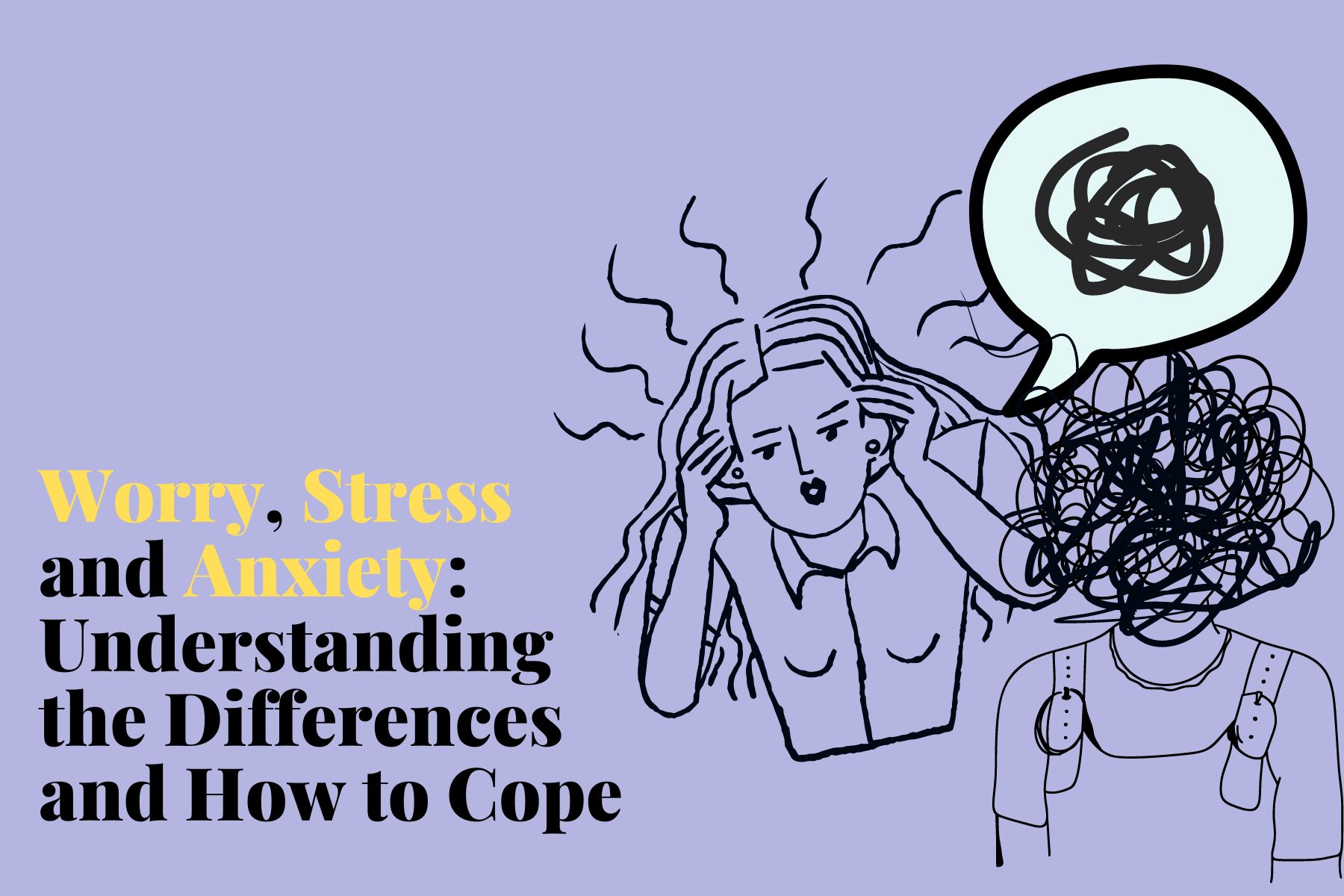CATEGORY: GENERAL HEALTH
Worry, Stress, and Anxiety:
Understanding the Differences and How to Cope

Worry, stress, and anxiety - we all experience them at some point in our lives. But what exactly are they, and how can we tell them apart? Let's take a closer look and explore some tips to manage each one.
Worry is a normal part of life. It's the feeling of unease or concern about something that may or may not happen. Worrying can be useful in some situations, as it can help us prepare for future events. However, when worrying becomes excessive or irrational, it can interfere with our daily lives and lead to anxiety.
Stress is the body's response to a demanding or threatening situation. It can be caused by work, school, relationships, financial problems, or any other situation that puts pressure on us. Stress can be positive or negative, and in small doses, it can motivate us to take action and overcome challenges. However, when stress becomes chronic, it can lead to physical and mental health problems.
Anxiety is the feeling of fear or apprehension about future events, situations, or objects. It's a natural response to stress, but when anxiety becomes chronic or excessive, it can interfere with our daily lives and lead to a range of physical and mental health problems.
So, how can we manage worry, stress, and anxiety?
For worry:
- Discover the most effective method to organize your thoughts. This could mean jotting down everything on your mind, creating a to-do list, or discussing things with a friend or coworker.
- Allocate a specific and adequate amount of time to recognize and work through your emotions. This will help you progress through the problem-solving process and prevent excessive dwelling on negative thoughts and emotions.
- Stay on track with your tasks by setting realistic goals and pushing aside any unhelpful, stubborn thoughts. The sooner you resolve the issues at hand, the less time you will spend worrying about them.
For stress:
- Take a few minutes to engage in light exercise. Even simple activities like a short walk or some gentle stretches can help to decrease the levels of stress hormones such as adrenaline and cortisol in our body.
- Remember that external factors and triggers are often beyond our control. Rather than focusing on things we can't change, we should concentrate on what we can control while accepting what we cannot.
- Don't compare your own stress levels with those of others. Each person faces unique types and levels of stress in their lives, making comparisons unhelpful and counterproductive.
For anxiety:
- Participate in mindfulness activities that bring you comfort, like practicing breathing exercises or following a short guided meditation.
- Discover enjoyable distractions that can divert your attention away from negative emotions and sensations. Some popular options include listening to your favorite music or podcasts, or snacking on healthy comfort foods.
- Make self-care a priority by taking care of your physical and mental well-being, even when the temptation to resort to destructive coping mechanisms seems strong. This includes eating a healthy diet, staying hydrated, and engaging in activities that promote relaxation and positive thinking.
Remember, it's normal to experience worry, stress, and anxiety, but when they become excessive or chronic, they can have a negative impact on our mental and physical health. By understanding the differences between them and practicing self-care, we can take control of our lives and live happy, healthy lives.


